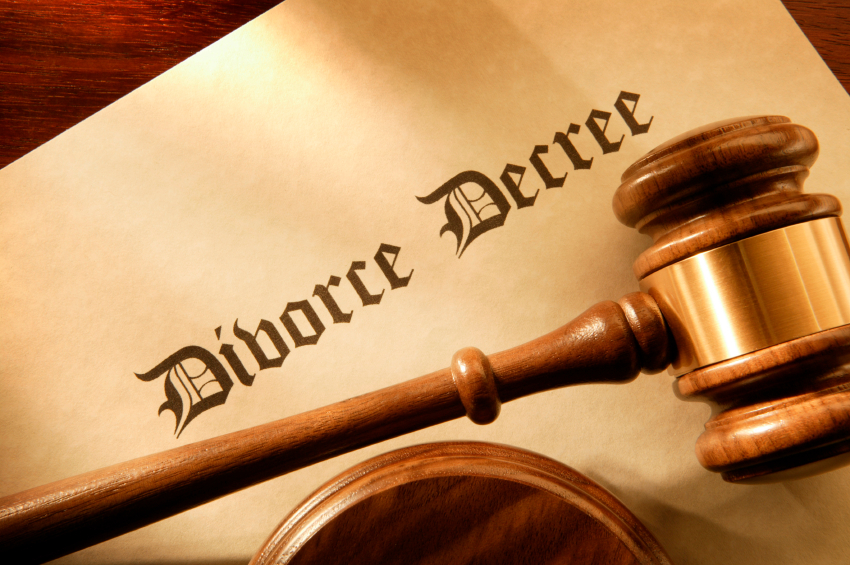
In Orloff v. Orloff, 36 Fla. L. Weekly D643a (Fla. 2d. DCA Mar. 30, 2011), th Second District Court of Appeal addressed the decision making process a court must complete when determining whether a spouse is entitled to received a share of a family business started before the marriage upon divorce.
Under Florida law, a non-marital business that is started prior to marriage will not become a marital asset subject to equitable distribution solely because of the fact that the business was later reincorporated during the marriage. However, any enhancement in value of the non-marital business since the date the parties married may be considered a marital asset, subject to equitable distribution if such enhancement was due to either party’s contribution of marital labor or marital funds.
In Orloff, the husband formed a sole proprietorship before the parties were married in the late 1980s. The business was incorporated in Massachusetts and the husband was the sole stockholder. Following the marriage and relocation to Florida, the husband reincorporated his business in Florida and continued to be the company’s only stockholder.
The trial court held that the business was a marital asset subject to equitable distribution because the business was reincorporated during the marriage. However, the Second District Court of Appeal reversed this decision and determined that the business was a non-marital asset because the husband used solely non-marital assets to form the company. The court explained that, pursuant to Section 61.075(6)(b)(1), Florida statutes, non-marital assets are “[a]ssets acquired and liabilities incurred by either party prior to the marriage, and assets acquired and liabilities incurred in exchange for such assets and liabilities.” According to the Orloff court, the mere fact that the business “was reincorporated under Florida law upon the parties’ relocation to Florida” was “not material” to the determination of whether the husband’s business was a marital asset subject to equitable distribution.
Continue reading
 Owning your own business when going through divorce in Florida can be challenging. If the business started during the marriage, then it is considered a marital asset and is subject to equal division to both parties. However, some businesses are dependent of a product while others are set-up on a service provided. A business valuation should be obtained by both the husband and wife, or if you can agree then one valuation may be acceptable.
Owning your own business when going through divorce in Florida can be challenging. If the business started during the marriage, then it is considered a marital asset and is subject to equal division to both parties. However, some businesses are dependent of a product while others are set-up on a service provided. A business valuation should be obtained by both the husband and wife, or if you can agree then one valuation may be acceptable.



 Am I on the hook for an accident if my soon to be ex was driving our car? Florida law recognizes that assets such as cars and houses are jointly owned if purchased during the marriage and must be
Am I on the hook for an accident if my soon to be ex was driving our car? Florida law recognizes that assets such as cars and houses are jointly owned if purchased during the marriage and must be  Which parent should claim the children as
Which parent should claim the children as 
 In Florida you may be required to pay child support even if you are unemployed. You might ask, “how do they calculate my income for child support guidelines if I do not have an income?” The answer is that income may be imputed or attributed to you in certain circumstances. For instance, if you became unemployed voluntarily, the court may impute income to you at the level you were last earning. That means if you quit your job, decided to change fields and became unemployed as a result, or moved to a different market where you can’t find a job, the court may attribute income to you at the level you were earning or are currently capable of earning.
In Florida you may be required to pay child support even if you are unemployed. You might ask, “how do they calculate my income for child support guidelines if I do not have an income?” The answer is that income may be imputed or attributed to you in certain circumstances. For instance, if you became unemployed voluntarily, the court may impute income to you at the level you were last earning. That means if you quit your job, decided to change fields and became unemployed as a result, or moved to a different market where you can’t find a job, the court may attribute income to you at the level you were earning or are currently capable of earning. Rehabilitative alimony is a type of alimony allocated to a spouse to provide assistance while her or she regains the ability to become self supporting. There must be a finding by the court that the dissolution of marriage will affect the requesting spouse’s ability to be self supporting for a period of time. If the marriage will not affect the spouse’s ability to obtain employment then rehabilitative alimony is unwarranted. The party seeking rehabilitative alimony has the burden of proof as to how they will gain training, what the object of the training will be, the length of the plan, and the cost. In addition it must be examined how this plan will make the spouse self supporting.
Rehabilitative alimony is a type of alimony allocated to a spouse to provide assistance while her or she regains the ability to become self supporting. There must be a finding by the court that the dissolution of marriage will affect the requesting spouse’s ability to be self supporting for a period of time. If the marriage will not affect the spouse’s ability to obtain employment then rehabilitative alimony is unwarranted. The party seeking rehabilitative alimony has the burden of proof as to how they will gain training, what the object of the training will be, the length of the plan, and the cost. In addition it must be examined how this plan will make the spouse self supporting. Judges in Florida family law cases are big proponents of family law mediation. It is estimated that 90% of family law cases are actually settled at mediation. If that is accurate it means that a majority of family law cases are taken off of the court’s docket before they go to a final hearing. This has the effect of freeing up the judges’ dockets for other cases that cannot be resolved through mediation. It’s no mystery then that judges in Florida family law cases promote mediation for family law clients. Most judges in Duval, Clay, Nassau, and St. Johns counties require mediation before you can even attend a final hearing.
Judges in Florida family law cases are big proponents of family law mediation. It is estimated that 90% of family law cases are actually settled at mediation. If that is accurate it means that a majority of family law cases are taken off of the court’s docket before they go to a final hearing. This has the effect of freeing up the judges’ dockets for other cases that cannot be resolved through mediation. It’s no mystery then that judges in Florida family law cases promote mediation for family law clients. Most judges in Duval, Clay, Nassau, and St. Johns counties require mediation before you can even attend a final hearing. Florida divorces are decided as a no-fault matter. Florida no-fault law that rules divorces basically means that the reason for the divorce is not important in determining issues surrounding the divorce. In Florida, divorces separate assets and liability (debts)
Florida divorces are decided as a no-fault matter. Florida no-fault law that rules divorces basically means that the reason for the divorce is not important in determining issues surrounding the divorce. In Florida, divorces separate assets and liability (debts)  Seeking an annulment in Florida requires your facts to match those prongs necessary in Florida annulment law, based on cases and not Statute.
Seeking an annulment in Florida requires your facts to match those prongs necessary in Florida annulment law, based on cases and not Statute.